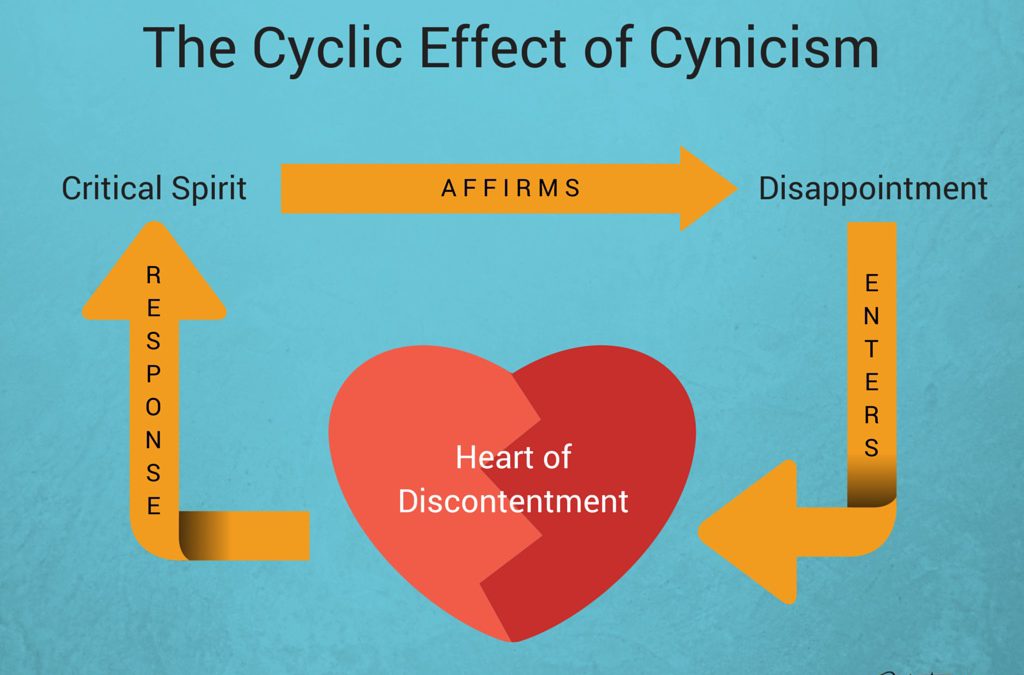Extant literature suggests the acquiring cynicism is a natural part of human development. Much of this research provides evidence that people’s beliefs and statements are not always aligned and, further that people may attempt to deliberately deceive others beginning at a young age. Consequently, we begin to become sensitive to a variety of sources of inaccuracy in people’s presentations, also from a very early age, as a protective measure against being taken advantage of our outright harmed. The last few years have offered plenty of fuel for cynicism, but what happens when cynicism becomes the rule rather than the exception in our daily lives? Writer Aida Knezevic recently reflected on this in her own life. She found a significant negative impact on her personal relationships, her ability to affect change in her life, and her overall mood. With that in mind, there are a few steps you can take to help combat cynicism based on what Knezevic found:
- Challenge yourself to go just a few days without consuming negative content (especially on social media) and take the time you would have spent doing so to examine your automatic thoughts to emotionally provocative situations. Before passing judgement on a situation or seeking out sources of information that confirm these automatic thoughts, list those thoughts out and then list out their complete opposite and gather what evidence you can for and against each.
- Knezevic says that “when cynicism becomes your default state, it makes it incredibly difficult to be hopeful or optimistic about any challenge you’re facing. And when you lose all hope, you also lose any willpower to make your life better.” Naturally, this would cause one to become risk averse. As such, challenge yourself to try something new or wonder out of your comfort zone at least once per week if not daily. Even if you do not end up with desirable results, you can take pride in having learned something new.
- Knezevic also suggest that “cynicism impairs your ability to celebrate the good not only in your own life but also in the lives of others, it can also cause your personal relationships to suffer.” As such, practicing at least one act of gratitude and compassion daily can help strengthen your relationships which can lead to improved quality of life and bolster you through difficult times.
To learn more, you can read Aida Knezevic’s full article here.

